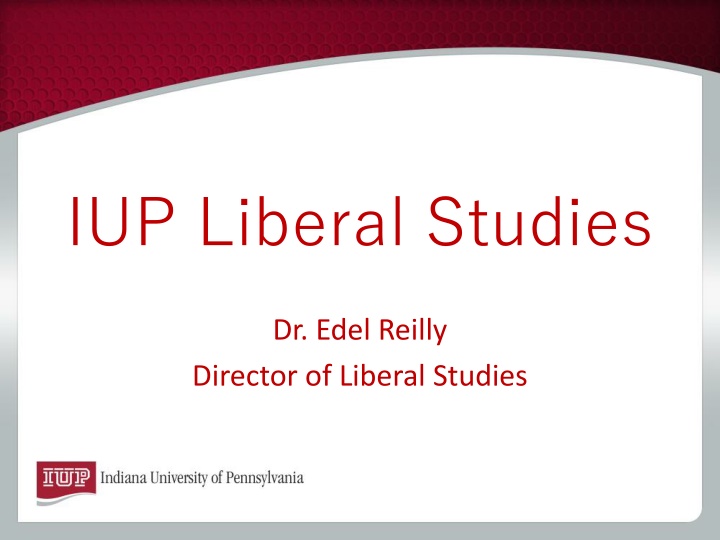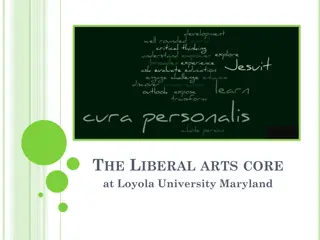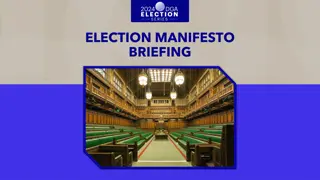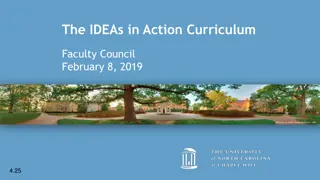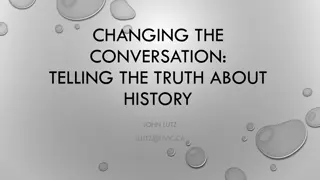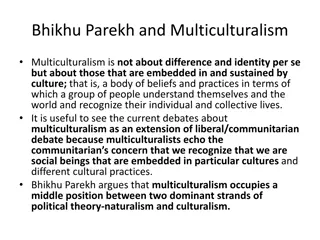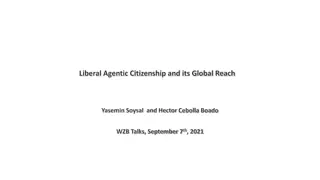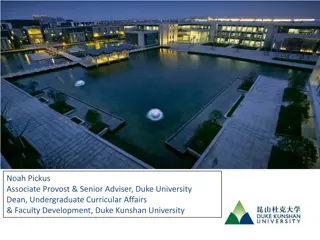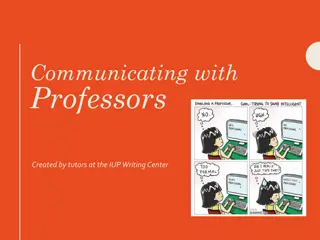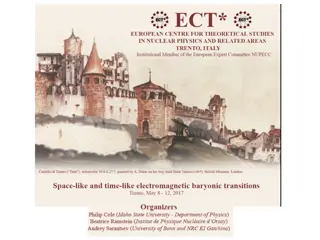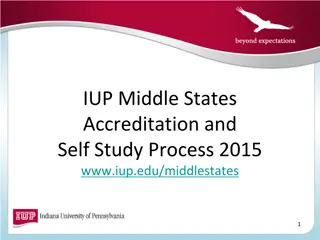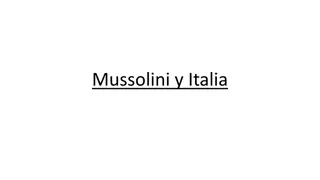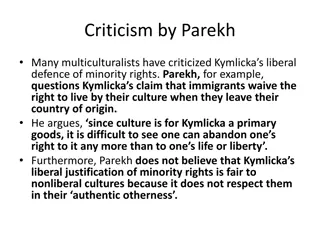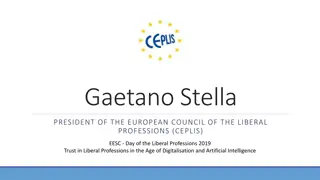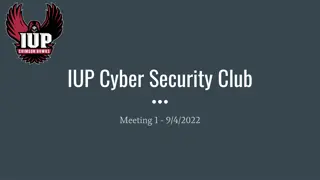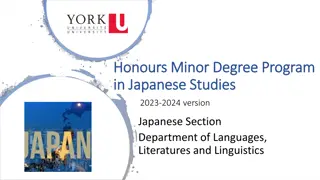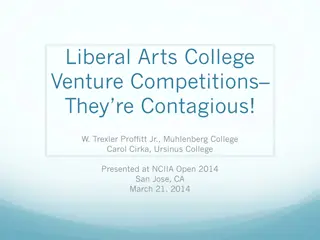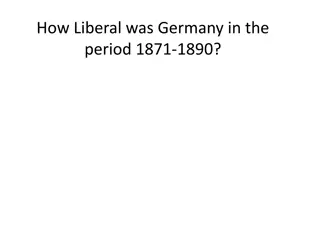Unveiling the Benefits of Liberal Studies at IUP
Discover the essence of Liberal Studies at Indiana University of Pennsylvania (IUP) through a comprehensive overview of the curriculum structure, learning objectives, and the impact it has on shaping students into well-rounded individuals equipped with essential skills for personal and professional success.
Uploaded on Sep 20, 2024 | 0 Views
Download Presentation

Please find below an Image/Link to download the presentation.
The content on the website is provided AS IS for your information and personal use only. It may not be sold, licensed, or shared on other websites without obtaining consent from the author.If you encounter any issues during the download, it is possible that the publisher has removed the file from their server.
You are allowed to download the files provided on this website for personal or commercial use, subject to the condition that they are used lawfully. All files are the property of their respective owners.
The content on the website is provided AS IS for your information and personal use only. It may not be sold, licensed, or shared on other websites without obtaining consent from the author.
E N D
Presentation Transcript
IUP Liberal Studies Dr. Edel Reilly Director of Liberal Studies
Can you name each individual? What do they have in common?
What did they do? Leonardo studied: Biology Civil Engineering Human Anatomy Considered a scientist as much as an artist Do not work in a silo Walter Issacson s Leonardo da Vinvi
What is Liberal Studies? Liberal studies is a common core curriculum required by all undergraduates that include courses related to the humanities, arts, and sciences. Liberal studies courses allow students to synthesize what they learn into a coherent whole that serves life goals. Liberal studies courses will allow students to gain marketability using required Liberal Studies coursework.
What does Liberal Studies add to a program? Professional behavior includes commitment to learning, interpersonal skills, communication skills, effective use of time and resources, use of constructive feedback, problem solving, responsibility, critical thinking, and stress management. Jette D. U., & Portney, L. G (2003) Provides the basis for developing essential learning outcomes.
Brief Overview of IUPs Liberal Studies Curriculum Students at IUP must take a minimum of 40 credits and a maximum of 48 credits. PASSHE s Board of Governors Policy 1990-06A Divided into three areas: Learning Skills English and Math Knowledge Areas Humanities, Sciences, Art, and Wellness Electives 9-10 cr. 31-32 cr. 3 -6 cr.
Writing Across the Curriculum effectively communicate in writing, be able to respond critically and analytically to materials and sources relevant to the course, and discuss/critique his or her own writing Writing Intensive Versus Writing Plans
What makes a Liberal Studies course different from regular course? Student Learning Outcomes versus EUSLO (pronounced you-slow)
Student Learning Outcomes (SLO) Every course and program at IUP should have student learning outcomes. They should focus on a smaller number of essential outcomes. They should be as specific, focused, and clear as possible general outcomes are hard to measure.
How to get started: Ask: What is the most important thing a student should know, be able to do or demonstrate after successfully completing my class/program? Make a list of these and try to write them as SLO statements. The student will be able to
Action Verbs Action verbs result in overt behavior that can be observed and measured. Bloom s Taxonomy Certain verbs are unclear and call for covert, internal behavior which cannot be observed or measured. These types of verbs should be avoided: appreciate, become aware of, become familiar with, know, learn, understand
TOO general and VERY HARD to measure. 1. 2. 3. 4. will appreciate the benefits of... will value resources at the ... will understand problem-solving skills. will have more confidence in their abilities.
Comparing Outcomes Still general and HARD to measure. Specific and relatively EASY to measure. 1. will value exercise as a stress reduction tool. will be able to develop and apply effective problem solving skills that would enable one to adequately navigate through the proper resources within the college. will demonstrate ability to resolve personal conflicts and assist others in resolving conflicts. will demonstrate critical thinking skills, such as problem solving as it relates to social issues. 1. will be able to explain how exercise affects stress. will be able to identify the most appropriate resource that is pertinent to their college concern. will be able to assist classmates in resolving conflicts by helping them negotiate agreements. will demonstrate the ability to analyze and respond to arguments about racial discrimination. 2. 2. 3. 3. 4. 4.
Some other examples US History: At the end of this course students will be able to: Write an essay defining a pluralistic society and its relationship to our democratic principles Outline the structure of the Constitution of the U.S. Music Appreciation: After completing this course students will be able to: Identify the basic elements of Western music List the instruments associated with Western music Describe the distinct style periods of Western music Recognize selected examples of Western music aurally General Psychology: Students who complete this course will be able to: Identify and define basic terms and concepts which are needed for advanced courses in psychology Outline the scientific method as it is used by psychologists Apply the principles of psychology to practical problems Compare and contrast the multiple determinants of behavior (environmental, biological, and genetic)
Characteristics of the Expected Undergraduate Student Learning Outcomes (EUSLO) Informed Learners understand nature and society through forms of inquiry fundamental to the sciences, the humanities, and the arts. Learners are informed by knowledge and ways of knowing that extend beyond core concepts enabling them to link theory and practice. Empowered Learners are critical thinkers who demonstrate intellectual agility and creativity and the ability to manage or create change. They are able to derive meaning from experience and observation. They communicate well in diverse settings and employ various strategies to solve problems. They are empowered through mastery of intellectual and practical skills. Responsible Learners are engaged citizens of a diverse democratic society who have a deep sense of social responsibility and ethical judgment. They are responsible for their personal actions and civic values.
EUSLO Categories Diversity Communication Civic Engagement and Social Justice Problem Solving Information Literacy Critical Thinking and Reasoning Skills Global Citizenship
What is happening now? Most Liberal Studies courses do have a syllabi of record that has an explicit discussion of how the learning objectives relate to the EUSLO characteristics. Departments are currently mapping the course outcomes to the EUSLO. Departments are implementing a tool to measure how the course outcomes are to be met.
DANC 102 Explores dance as communication, ritual, social engagement, entertainment, and as an art form. Dance history, genealogy, aesthetics, critical analysis and response, and the creative process are examined. Class experience includes viewing and critical analysis of professional dance works, attending at least two live productions, and engaging in the creative process in practice and performance.
